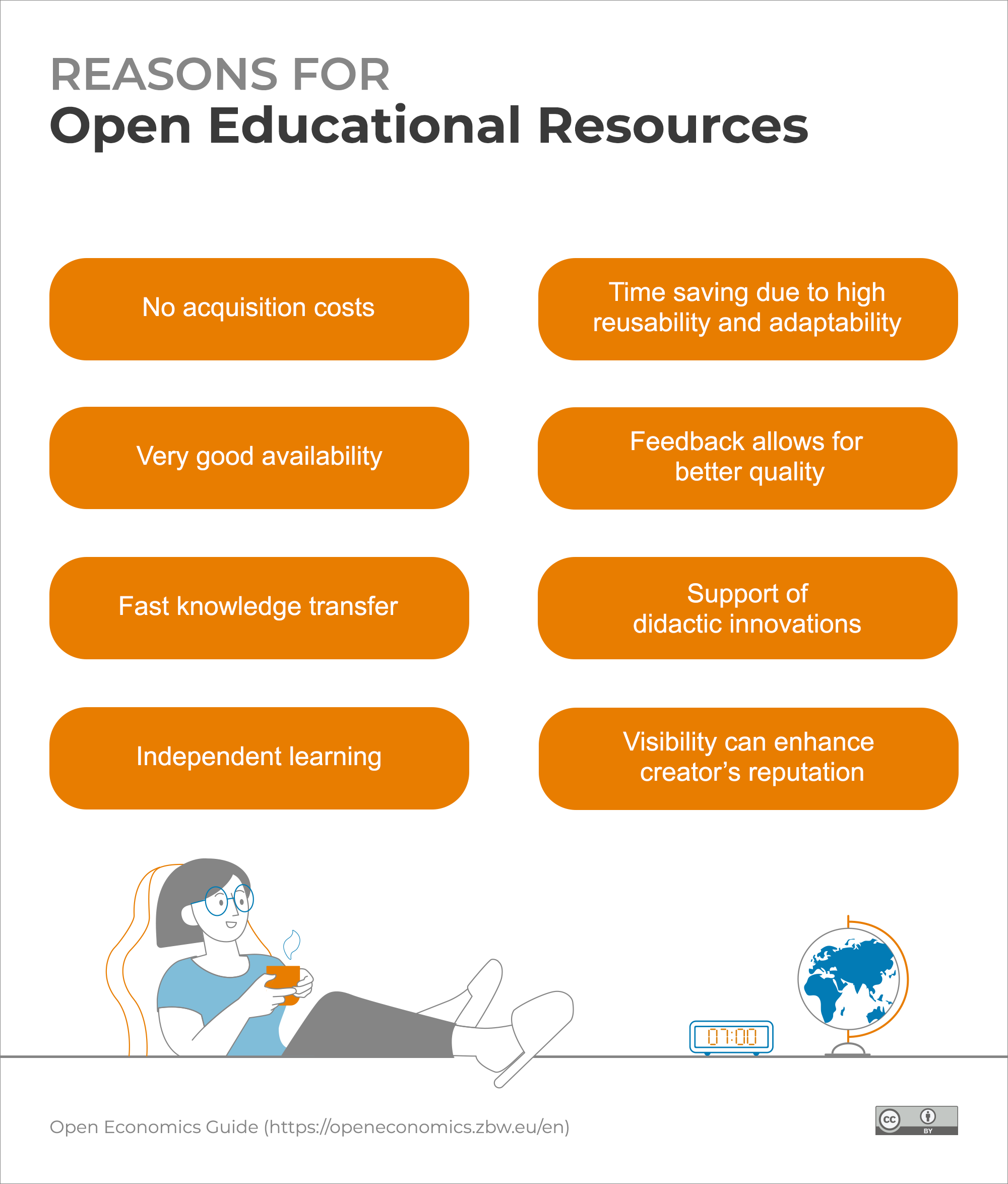Reasons for Open Educational Resources
Releasing educational resources as Open Educational Resources (OER) enables free access to education for a wider range of people. This can be beneficial for both learners and teachers. The reasons in favour of OER include:
- No acquisition costs: By not incurring any costs, for example for expensive textbooks, OER contribute to equal opportunities.
- Availability: Digital OER are universally available and reach learners faster than printed textbooks, for example. Moreover, they can be used by many learners at the same time, no matter where they are.
- Knowledge transfer: OER can accelerate the dissemination of knowledge.
- Self-organisation: OER can promote self-determined learning.
- Time saving and adaptability: By repurposing OER, teachers can save time. They can also revise existing OER to suit their students and their own style.
- Potentially higher quality: Due to their open approach, OER offer more feedback opportunities. This includes (academic) quality assurance through a more intensive peer review process. OER can also be continuously improved and updated.
- Teaching innovations: The exchange of OER promotes the emergence of new didactic concepts and the elimination of the classic separation of learners and teachers in favour of dialogue formats. Students can be more easily involved in the further processing of materials and contribute their ideas, new approaches and research questions.
- Reputation through teaching performance: Thanks to OER, the content created by teachers can reach more people and thus gain more visibility. The performance achieved in the course of teaching activities can thus be perceived more strongly by the outside world and enhance the reputation of teachers and their university.
